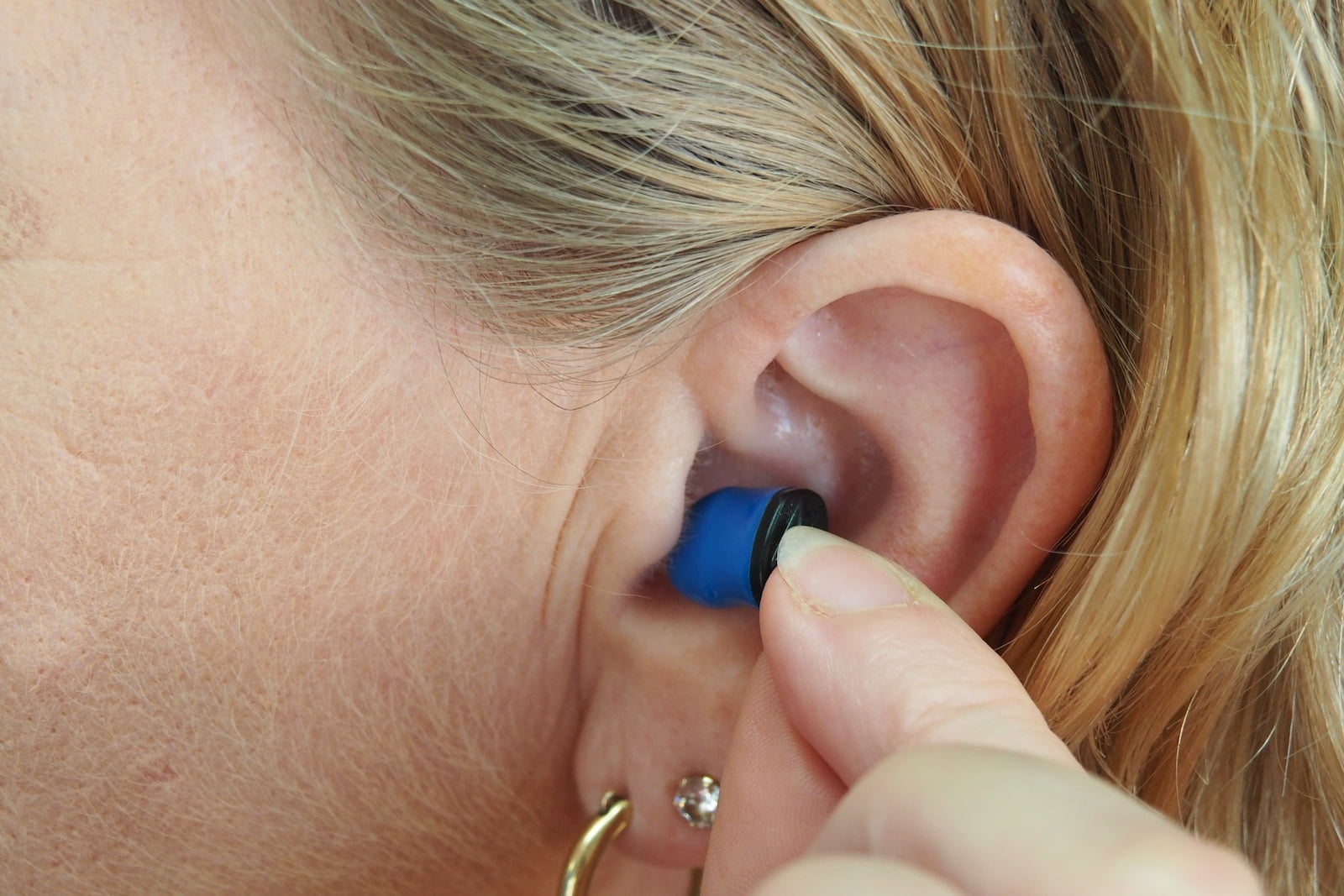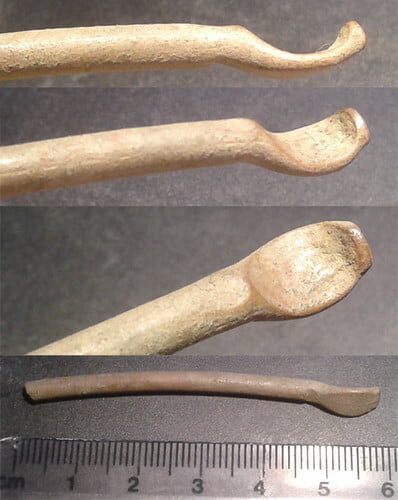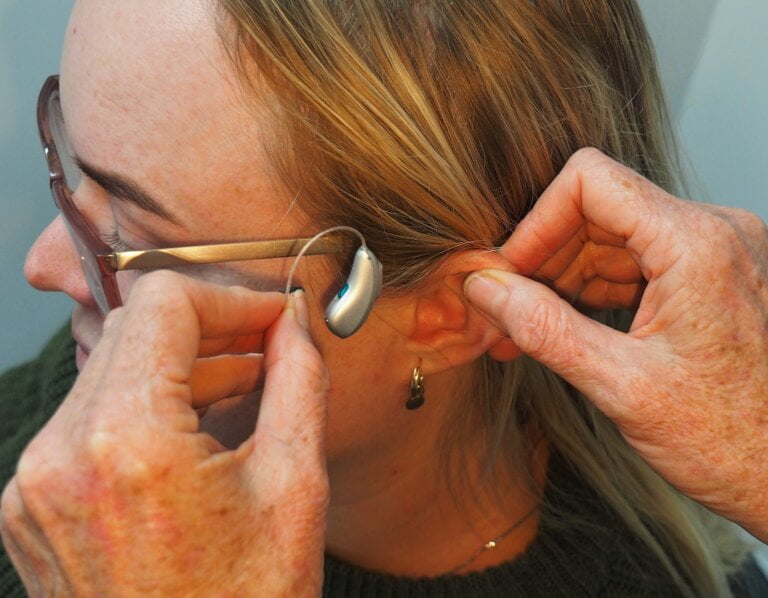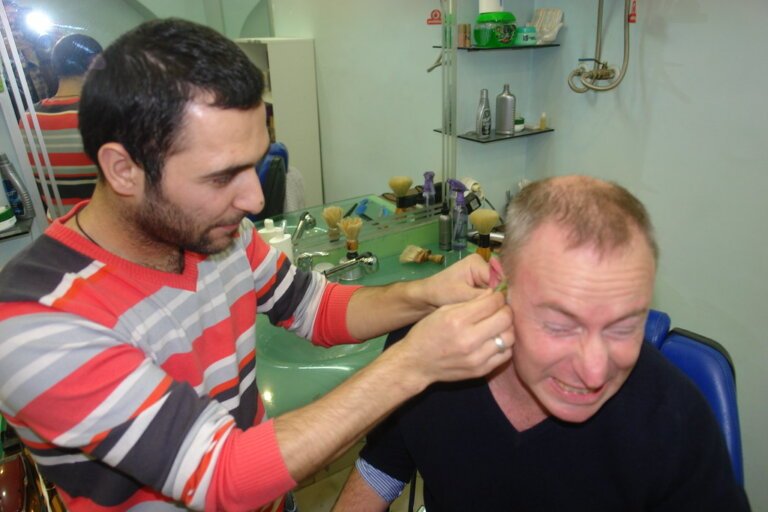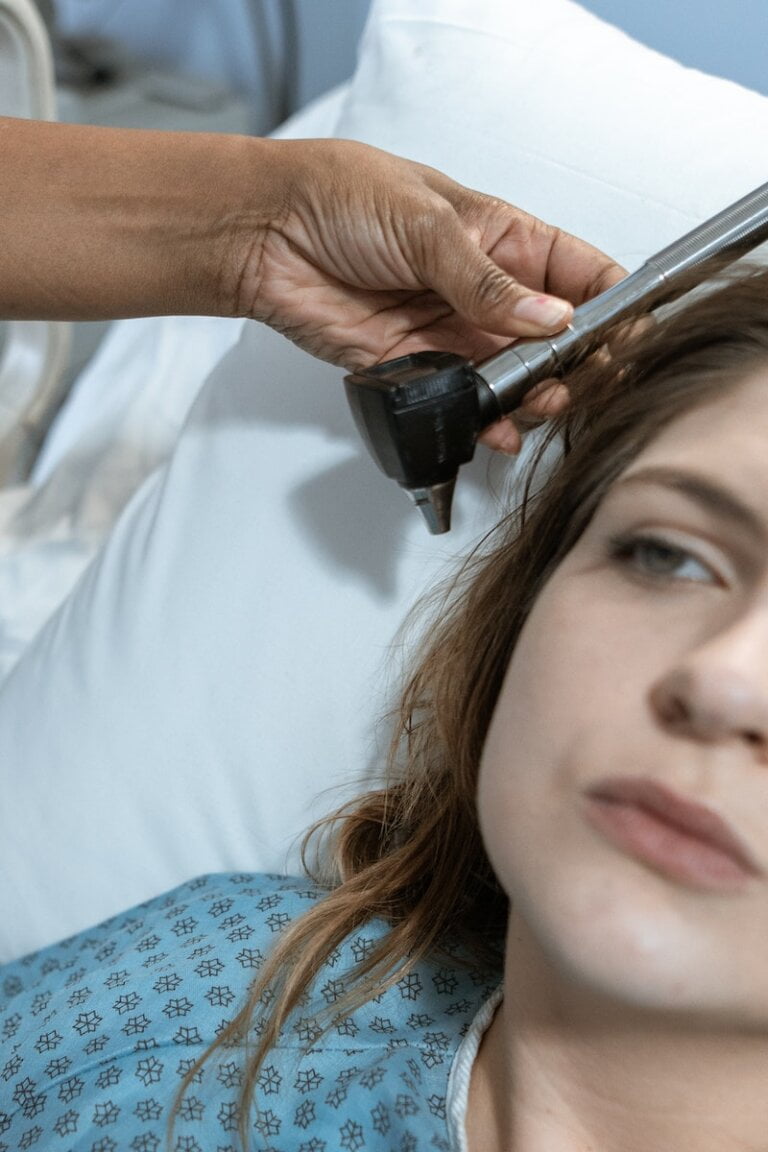Behind the Scenes: A Closer Look at Microsuction Apprenticeships
Last Updated on 3rd May 2024 by Admin
Microsuction apprenticeships offer a unique opportunity for individuals interested in the field of ear care to gain practical skills and knowledge under the guidance of experienced professionals. In this article, we will delve into the world of microsuction apprenticeships, exploring the benefits, requirements, and what one can expect from pursuing this career path.
What is Microsuction?
Microsuction is a safe and effective method used by audiologists and ear care specialists to remove earwax and other debris from the ear canal. Unlike traditional methods such as ear syringing, microsuction employs a gentle suction technique that minimizes the risk of discomfort or damage to the delicate structures of the ear.
Microsuction is considered the gold standard in earwax removal due to its precision and safety. The process involves using a specially designed microscope and a low-pressure suction device to extract excess wax and debris from the ear canal. This method ensures thorough removal while minimizing the risk of pushing the wax deeper or causing any harm to the ear.
The Importance of Ear Care
Maintaining good ear health is essential for overall well-being. While our ears are naturally equipped to self-clean, excessive earwax buildup can lead to various issues, including hearing loss, tinnitus, and ear infections. Regular removal of earwax is crucial to prevent such complications and ensure optimal hearing health.
Ear care involves not only the removal of earwax but also the assessment and management of various ear conditions. Audiologists and ear care specialists play a vital role in diagnosing and treating ear-related problems, ensuring the well-being of their patients. By pursuing a microsuction apprenticeship, individuals can contribute to improving the ear health of others and make a difference in their lives.
Why Pursue a Microsuction Apprenticeship?
- Hands-on Learning: Microsuction apprenticeships provide a hands-on learning experience, allowing individuals to develop practical skills by assisting experienced professionals in real-life scenarios. This enables apprentices to gain invaluable knowledge and confidence in performing microsuction procedures.
During the apprenticeship, individuals have the opportunity to observe and participate in various aspects of ear care. They can witness firsthand the techniques and methods used by experienced practitioners, and gradually apply these skills under supervision. This hands-on approach not only enhances their technical abilities but also builds their confidence and prepares them for independent practice.
- Guidance from Experts: Working closely with experienced audiologists and ear care specialists offers apprentices the opportunity to learn from the best in the field. Mentors can provide valuable insights, tips, and tricks that may not be found in textbooks or online resources.
The guidance provided by experts is invaluable in shaping the skills and knowledge of aspiring ear care practitioners. Mentors can share their years of experience, discuss challenging cases, and provide practical advice on patient management. This personalized guidance allows apprentices to develop a deeper understanding of the field and learn from the real-life experiences of professionals.
- Industry-Recognized Certification: Completing a microsuction apprenticeship often leads to industry-recognized certifications, which can enhance career prospects and open doors to various employment opportunities. These certifications serve as a testament to the apprentice’s proficiency in performing microsuction procedures.
Obtaining a recognized certification not only demonstrates competency but also instills confidence in potential employers and patients. It serves as a validation of the apprentice’s skills and knowledge, making them more marketable in the competitive job market. With a certification in hand, individuals can pursue employment in a variety of settings, such as clinics, hospitals, or private practices.
- Job Placement Assistance: Many microsuction apprenticeship programs include job placement assistance upon completion. This can significantly increase the chances of finding employment in reputable clinics or audiology practices, kickstarting a successful career in the field.
Job placement assistance provided by apprenticeship programs helps individuals transition smoothly from training to professional practice. The program coordinators or mentors may have established connections with potential employers, making it easier for apprentices to secure employment. This support not only saves time and effort in job searching but also ensures that individuals find a suitable work environment to apply their newly acquired skills.
- Continuous Professional Development: The field of ear care is constantly evolving, with new techniques and technologies emerging regularly. By engaging in a microsuction apprenticeship, individuals can ensure their knowledge remains up-to-date, facilitating continuous professional development and growth within the industry.
The learning journey doesn’t end with the completion of an apprenticeship. Successful ear care practitioners understand the importance of staying updated with the latest advancements in the field. They actively participate in continuous professional development activities, such as attending workshops, conferences, and pursuing further specialized training. This commitment to ongoing learning ensures that practitioners can deliver the highest quality of care to their patients.
Requirements for Microsuction Apprenticeships
While specific requirements may vary depending on the program and region, there are common prerequisites for individuals interested in pursuing a microsuction apprenticeship:
- Educational Background: Most microsuction apprenticeship programs require a high school diploma or equivalent qualification. A background in science or healthcare-related subjects may be advantageous but is not always mandatory.
Having a solid educational foundation is essential for individuals entering the field of ear care. While a science or healthcare-related background can provide a head start, it is not always a strict requirement. Microsuction apprenticeships provide comprehensive training that covers the necessary theoretical and practical aspects, enabling individuals from various educational backgrounds to pursue a career in ear care.
- Good Communication Skills: As ear care professionals often interact closely with patients, strong communication skills are essential. Apprentices should possess excellent verbal and written communication abilities to effectively convey information and provide appropriate care.
Effective communication is a cornerstone of patient-centered care. Apprentices must be able to communicate clearly and compassionately with patients of all ages and backgrounds. They should be able to listen attentively, explain procedures in a way that patients can understand, and address any concerns or questions. Good communication skills not only facilitate effective treatment but also help build trust and rapport with patients.
- Manual Dexterity: Performing microsuction procedures requires precise hand-eye coordination and manual dexterity. A steady hand and attention to detail are crucial to ensure the safety and comfort of the patient.
Microsuction involves delicate and precise movements within the ear canal. Apprentices must possess excellent manual dexterity to handle the specialized tools and perform the procedure accurately. They should be able to work with precision and focus, ensuring the safety and well-being of their patients throughout the process.
- Patience and Empathy: Dealing with patients who may be experiencing discomfort or anxiety requires patience and empathy. Apprentices should be compassionate and understanding, providing reassurance and support during procedures.
Some patients may feel anxious or apprehensive about having their ears examined or undergoing microsuction. It is important for apprentices to approach each patient with empathy and understanding, creating a calm and supportive environment. Patience is necessary when addressing patient concerns and ensuring their comfort throughout the procedure. By demonstrating compassion and empathy, apprentices can help alleviate anxiety and build positive patient experiences.
- Understanding of Infection Control: Infection control is of utmost importance in any healthcare setting. Prior knowledge or willingness to learn and adhere to strict infection control protocols is necessary to ensure the safety of both the patient and the practitioner.
Maintaining a sterile environment is crucial during microsuction procedures to prevent the risk of infections. Apprentices must have a solid understanding of infection control protocols and be committed to following them rigorously. This includes proper hand hygiene, disinfection of equipment, and adherence to universal precautions. By prioritizing infection control, apprentices can ensure the safety and well-being of both themselves and their patients.
The Structure of Microsuction Apprenticeships
Microsuction apprenticeships typically consist of a combination of theoretical learning and practical experience. The structure may vary depending on the program, but generally includes the following components:
- Classroom Education: Apprentices receive theoretical training on topics such as ear anatomy, ear care techniques, infection control, and patient communication. This classroom education lays the foundation for practical application.
In the classroom setting, apprentices learn the theoretical knowledge necessary for understanding the anatomy and physiology of the ear. They study various ear conditions, diagnostic procedures, and treatment options. This theoretical education provides a comprehensive understanding of ear care, enabling apprentices to apply their knowledge in practical scenarios.
- Observation: Apprentices have the opportunity to observe experienced practitioners performing microsuction procedures. This allows them to familiarize themselves with the techniques, equipment, and patient interactions involved.
Observation is a crucial component of the apprenticeship, as it allows apprentices to witness the practical application of their theoretical knowledge. By observing experienced practitioners, they can learn the proper techniques, understand the nuances of patient interactions, and gain insights into the challenges and best practices in the field. This observation period helps build a solid foundation for their own hands-on practice.
- Hands-on Practice: Under the guidance and supervision of mentors, apprentices gradually gain practical experience by performing microsuction procedures on consenting patients. This stage provides an opportunity to refine skills and build confidence.
Once apprentices have acquired the necessary theoretical knowledge and observed the procedures, they transition to hands-on practice. Working under the supervision of experienced mentors, they start by assisting in simple procedures and gradually progress to performing microsuction themselves. This hands-on practice allows them to refine their skills, develop confidence, and apply their theoretical knowledge in real-life scenarios.
- Progressive Responsibilities: As apprentices progress in their training, they may be assigned more responsibilities, such as patient assessments, treatment planning, and follow-up care. This gradual increase in responsibility prepares them for independent practice.
Throughout the apprenticeship, apprentices are gradually given more responsibilities, mirroring the progression of their skills and knowledge. They may be involved in conducting patient assessments, formulating treatment plans, and providing follow-up care. This progressive increase in responsibilities prepares them for the challenges they will face in their future careers, ensuring they are well-equipped to handle the demands of independent practice.
- Continued Learning: Even after completing a microsuction apprenticeship, the learning journey doesn’t end. Successful ear care practitioners engage in continuous professional development, attending workshops, conferences, and staying up-to-date with the latest advancements in the field.
To stay at the forefront of the field, ear care practitioners must actively engage in continued learning. This involves attending workshops, conferences, and seminars to expand their knowledge and skills. They stay updated with the latest research, techniques, and technologies in ear care, ensuring they provide the best possible care to their patients. Continuous professional development allows practitioners to grow and evolve with the field, offering the highest standard of service.
Conclusion
Microsuction apprenticeships provide a comprehensive and practical pathway for individuals aspiring to become skilled ear care practitioners. By offering hands-on learning, guidance from experts, and industry-recognized certifications, these apprenticeships equip individuals with the knowledge and skills needed to excel in the field of microsuction. Whether one embarks on this career path for personal interest or professional growth, a microsuction apprenticeship can be a rewarding experience, opening doors to a fulfilling and impactful career in ear care.
FAQ
Q1: What is microsuction?
A1: Microsuction is a safe and effective method used by audiologists and ear care specialists to remove earwax and debris from the ear canal. It employs a gentle suction technique that minimizes discomfort and damage to the ear.
Q2: Why is ear care important?
A2: Maintaining good ear health is crucial for overall well-being. Excessive earwax buildup can lead to hearing loss, tinnitus, and ear infections. Regular removal of earwax is necessary to prevent complications and ensure optimal hearing health.
Q3: Why should I pursue a microsuction apprenticeship?
A3: Microsuction apprenticeships offer hands-on learning, guidance from experts, industry-recognized certifications, and job placement assistance. They provide practical skills and knowledge to excel in the field of microsuction and open doors to various employment opportunities.
Q4: What are the requirements for microsuction apprenticeships?
A4: Common prerequisites include a high school diploma, good communication skills, manual dexterity, patience and empathy, and understanding of infection control protocols. A science or healthcare-related background may be advantageous but is not always mandatory.

